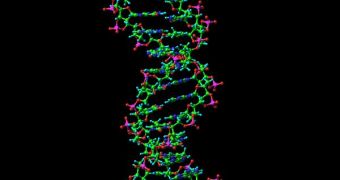Each time a new child is born, they carry some of the genetic material from their mother and father, in equal proportions. In addition to this legacy, they also carry between 100 and 200 genetic mutations, which their parents do not have. Some of these mutations are caused by environmental factors, and represent adaptations, while others are copying errors, and represent nothing more than glitches, which can have potentially fatal consequences. The new numbers were collected by researchers after analyzing the mutations undergone by the Y chromosome when passed from mothers to babies.
The experts in charge of this study, from the Wellcome Trust Sanger Institute, in Hinxton, the United Kingdom, and other research institutes in China, have determined that this number is universal in all human newborns. The team says that the number is equivalent to approximately one base pair of DNA in 30 million mutating, which is conclusive with results discovered in animal studies, and also in research related to investigating the chances of rare, genetically transmitted disorders, Nature News reports.
For the new investigation, about ten million base pairs of DNA were tested, belonging to two men from rural China, which had a common ancestor that lived more than 200 years ago. Over some 13 generations, the Y chromosome was faithfully transmitted along hereditary lines, with only minor genetic modifications, the British-Chinese team says. By using next-generation sequencing technologies on biological samples from the two distant relatives, the scientists managed to isolate 23 candidate mutations, of which 12 were validated using standard sequencing methods.
Out of the dozen mutations, eight took place in cell cultures, as the team was investigating the evidence. Therefore, a total number of four genuine, inherited mutations was discovered. Extrapolating this number to the total amount of genetic material in the organism, the researchers came up with the one-in-30-million-base-pair number. Details of the experiments and the tests are published in the latest issue of the respected scientific journal Current Biology. The paper was authored by Wellcome Trust Sanger Institute expert Chris Tyler-Smith.

 14 DAY TRIAL //
14 DAY TRIAL //